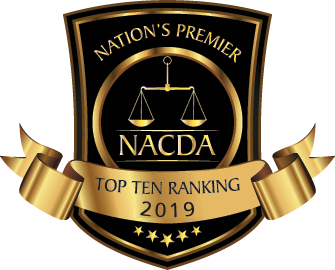Being accused of a crime is a horrible experience. The ordeal can have a lasting impact on your reputation, career, family life, and freedom. Being accused of a crime in the military can be an even more traumatic experience because of the unique nature of the proceedings.
The differences between the military justice system and the civilian court systems are substantial. For example, while all courts-martial are governed by the Uniform Code of Military Justice (UCMJ), the Rules for Courts-Martial (RCM), and the Military Rules of Evidence (MRE), each branch operates courts-martial slightly differently.
In addition to differences between the Army, Navy, Air Force, Marine Corps and Coast Guard, there are also three levels of courts-martial a command may utilize for disciplinary action: Summary Court-Martial (SCM), Special Court-Martial (SPCM), and General Court-Martial (GCM). These courts-martial differ in the seriousness of the offense that can be tried, the procedures used and possible punishments.
Summary Court Martial
A summary court-martial is for minor offenses allegedly committed by enlisted soldiers. A single officer presides over the hearing, and the punishment he or she can impose depends on the grade of the accused. As in the civilian legal system, the government has the burden of proving guilt, and the accused has the right to cross-examine witnesses, to call witnesses and produce evidence and to testify or remain silent.
Special Court Martial
In contrast to a summary court-martial, a special court-martial may be presided over by a panel (jury) of four or more members and a military judge, or a military judge alone. An enlisted service member may ask that at least one-third of the court members be enlisted. It may try all persons subject to the UCMJ, including officers, and hand out any punishment authorized under the RCM except death, dishonorable discharge, confinement for more than 1 year, hard labor without confinement for more than 3 months, forfeiture of pay exceeding two-thirds pay per month or any forfeiture of pay for more than 1 year.
No Bad Conduct Discharge (BCD) Special Court Martial
In 2019, a new type of special court-martial was created called the “No BCD Special Court Martial.” This type of court-martial is designed to take place quickly and handle minor offenses, which are offenses that carry less than a two-year maximum length of confinement. The offenses tried at this type of court-martial also cannot require registration as a sex offender. Under this type of court-martial, an accused is not entitled to a panel (jury) and only a military judge will hear the evidence and, if there is a conviction, determine the sentence. Because the defendant is not allowed to have a jury, the punishment under this type of court-martial is limited. Sentences are limited to no more than 6 months incarceration and forfeitures of pay are capped at forfeiture of 2/3 pay for no more than 6 months. A military judge cannot issue a discharge from service in this type of court-martial.
General Courts-Martial
General courts-martial are reserved for the most serious crimes, and they therefore have much greater sentencing powers. If a service member is convicted by the general court-martial, the sentence imposed can be any punishment authorized by the Manual for Courts-Martial, including death. In most cases, an accused facing a general court-martial gets to decide if they would rather be tried by a military judge alone or a panel consisting of a military judge and at least eight members. Upon request, an enlisted accused is entitled to a panel consisting of at least one-third enlisted membership.
Our Experienced Court-Martial Attorneys
Thankfully, just as in the civilian criminal justice system, members of the military do not have to settle with an inexperienced court-appointed attorney from the trial defense service. A military member accused of a crime has the right to hire a civilian military defense attorney. However, not just any attorney will do because not all attorneys have the skill necessary to make them an effective advocate for you during a court-martial, even if they have years of experience working in the civilian criminal defense system.
Just as service members need proper training and equipment for the action at hand, so too does an attorney. The unique nature of the court-martial system necessitates you hire an attorney with demonstrated military law experience if you want to have the best chance of defending yourself.
If you are, or believe you might be, facing a military court-martial, the time to secure an experienced attorney that will aggressively fight for you is now. Attorneys at our firm have years of experience defending service members facing the most serious allegations. With years of trial experience on high profile cases and experience aggressively fighting on behalf of clients in both the trial and appellate courts, we offer our clients facing courts-martial top-tier representation.
Whether you are stationed in the United States, Alaska, Hawaii, Germany, Italy, Korea, Japan or in other locations, our attorneys are ready and willing to represent you no matter where you are located.





